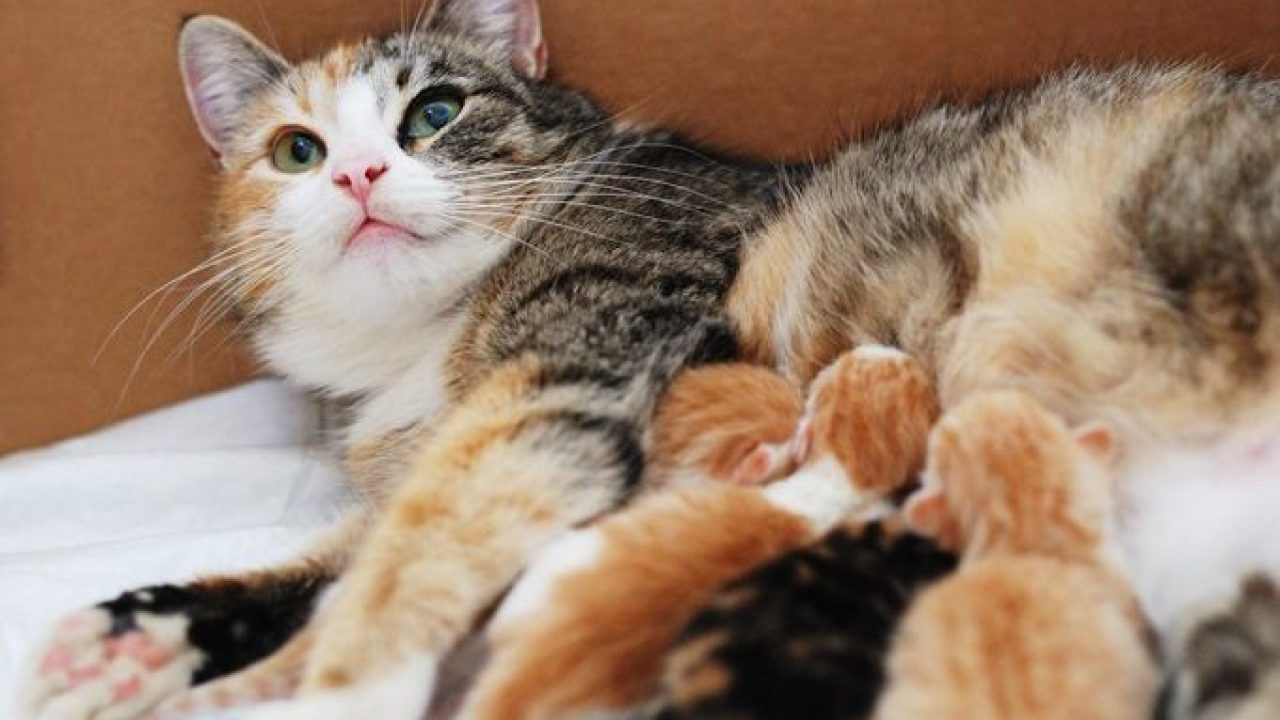By nature, cats are very good mothers, even when they have their first litter, this is part of their natural feline instinct, so it is normal for them to know how to take care of their puppies completely without the help of human hands.
However, sometimes the mother refuses to take care of one of her puppies or the whole nest, and you wonder why your cat rejected your puppies?This question can be useless for anyone who has cats at home.
- To help you understand this situation.
- In Animal Expert we will explain what factors can motivate this situation.
Many people, when they notice that a cat rejects their cubs, interpret as if it were a bad mother, that the cat does not want to take care of her litter on a whim or disamoration.
However, if felines are able to develop a very deep affection, it should not be forgotten that they are animals that govern their behavior according to their instincts and that there may be factors that lead to a cat that has recently had young to reject them.These factors are related to:
In animals the most important thing is the survival instinct, and felines are no exception, with this instinct the mother is able to detect if any of the puppies, or even the whole litter (something rare, but possible), is born with an infection or disease.
When this happens, it is normal for the mother to refuse to waste care and milk on a litter that she believes will not survive or, when it is just one of the puppies, keep her away from others to avoid spreading a healthy litter., as well as administering your milk only for puppies most likely to survive.
This may sound cruel, but this is how the animal world works, it is not possible to risk the health of a complete litter by a sick puppy with little chance of life, however, as a human owner, there is a possibility that you can If you think the rejected puppy is sick, take it to the vet for a diagnosis and instructions to feed the newborn kitten rejected by its mother.
The cat may be sick or feeling about to die, either from complications during childbirth (some breeds may have problems during this phase), or because she is suffering something else.. In this case, the cat will move away from its cubs, both because of the discomfort it feels and to prevent them from spreading their disease.
If you see a weak or sick parent, take him immediately to the veterinarian for review of his health as well as the health of the little ones.
Although most cats have the instinct to care for their sand, there are cases where the cat does not know how to care for it, how to feed them or how to clean them, so they will choose to abandon them.
If this happens, you can try to show her what to do, approaching them to treat or cleaning them near her to see how to do it.You have to be very patient.
It can also happen that the sand is very large (5 or 6 cats or so) and that the cat has the impression that it cannot take care of everyone or that it does not have enough milk for so many puppies, so it will stay away from the one that seems weaker to take care of those who are most likely to grow.
In these last two cases, the feline instinct tells the mother that she must bet on the safeguarding of all the food, heat and space needed only for the most fit cats, even if she lets the weakest die.
The cat knows that she will give birth, so it is normal that before the party she tries to get a space that she thinks is ideal to take care of her puppies, keeping everything that might hurt them.
As with humans, in recent days the cat will be a little nervous and, if you start to annoy it with caresses, treats and attentions that you do not want, or if it is about changing the place you chose as a nest, it is possible that its stress level will increase and will decide not to care for the puppies when they are born.
You must respect the nest you have chosen and put blankets in place to be more comfortable.Consider moving alone if you feel the family may be at risk and let your cat feel good in the new place.
The ideal is to be attentive to the mother, but allow her to be calm, likewise once the litter is born, it is not recommended to touch the cats much during the first few weeks, since the smell of a stranger (the human owner) can do it.have the cat reject the puppies.
We hope these tips have helped you better understand this situation. If you find that your cat is rejecting one of the puppies or their entire litter, do not hesitate to let your veterinarian know. If the puppies are healthy, you have to take responsibility.for becoming her replacement mother for the first few weeks.
This article is for informational purposes only, in Animal Expert.com.br we cannot prescribe veterinary treatments or make any type of diagnosis, we suggest taking your pet to the veterinarian in case of any type of condition or discomfort.
If you would like to read articles similar to, we recommend that you visit our Pregnancy Problems section.

